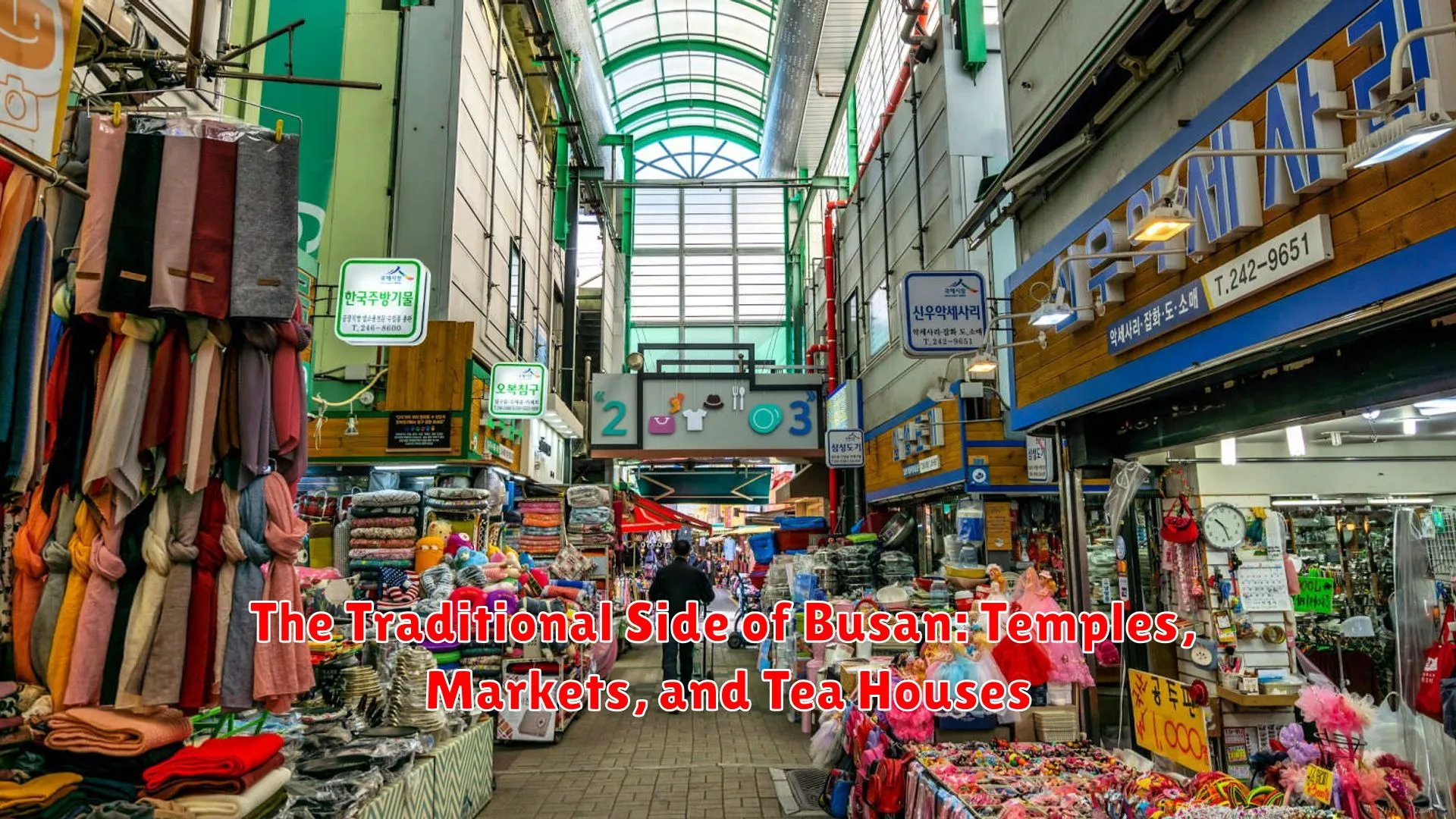Discover the serene charm of Busan’s traditional side, where ancient temples, bustling markets, and quaint tea houses await. Explore the cultural heart of South Korea’s second-largest city and immerse yourself in its rich history and vibrant heritage.
Exploring Busan’s Traditional Markets
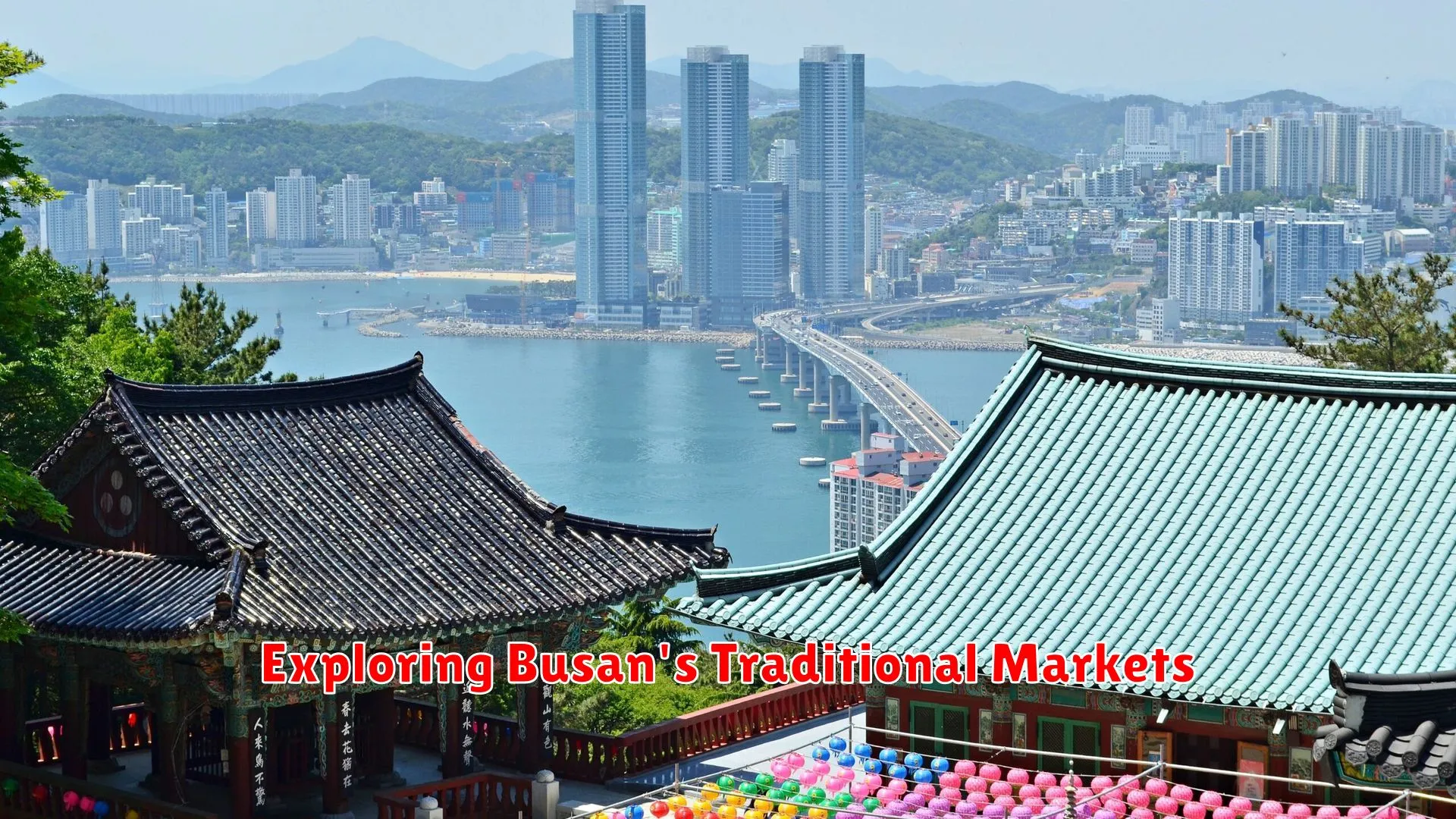
Busan, a bustling city on the southern coast of South Korea, offers a glimpse into its rich cultural heritage through its traditional markets. These markets are not just places to shop, but also vibrant centers of local life and heritage.
Jagalchi Fish Market
One of the must-visit markets in Busan is Jagalchi Fish Market, where the sights and smells of fresh seafood greet visitors. Stalls line the market selling a variety of seafood, from live fish and shellfish to dried seaweed and octopus. Be sure to try some hoe (sliced raw fish), a local delicacy renowned for its fresh and flavorful taste.
Bupyeong Kkangtong Market
For a more traditional experience, head to Bupyeong Kkangtong Market, known for its narrow alleys filled with small shops selling everything from clothes to accessories and local snacks. The market exudes a nostalgic charm, making it a great place to immerse yourself in Busan’s traditional way of life.
Gukje Market
Gukje Market is another iconic market in Busan, offering a blend of traditional and modern shopping experiences. Here, you can find a wide range of goods, including clothing, accessories, vintage items, and delicious street food. The market’s bustling atmosphere and diverse offerings make it a popular spot among locals and tourists alike.
A Journey Through Busan’s Historic Temples
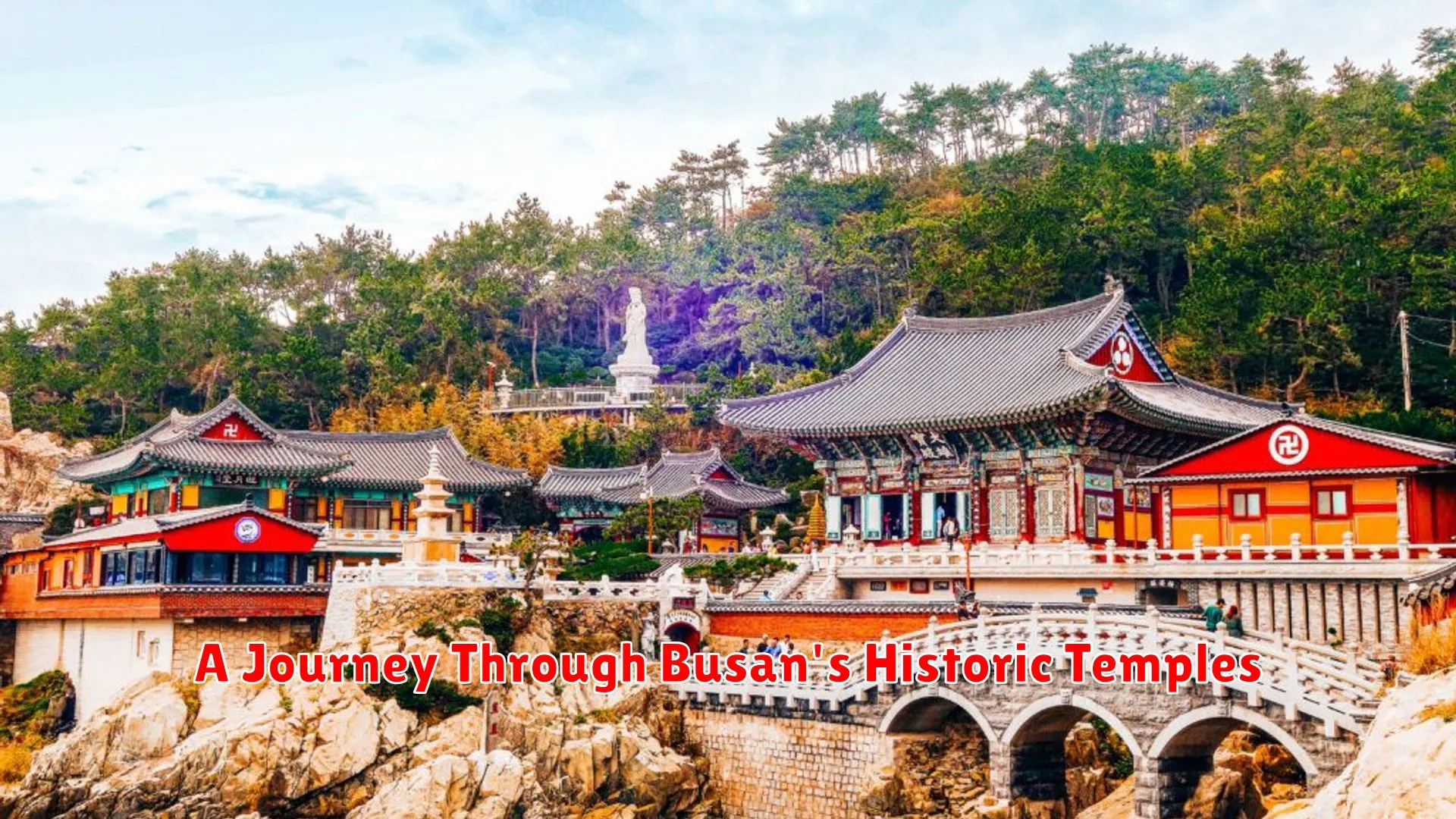
Busan, a vibrant city in South Korea, is not only known for its modern architecture and bustling markets but also for its rich history preserved within ancient temples. Taking a journey through Busan’s historic temples offers a glimpse into the traditional side of the city, allowing visitors to immerse themselves in the serenity and spirituality of these sacred sites.
One of the must-visit temples in Busan is Beomeosa Temple, which dates back to the 7th century. Nestled in the foothills of Mt. Geumjeongsan, Beomeosa Temple is a serene escape from the city’s hustle and bustle. Visitors can admire the intricate architecture, colorful pagodas, and tranquil gardens while learning about the temple’s profound significance in Korean Buddhism.
Another prominent temple to explore is Haedong Yonggungsa Temple, uniquely situated along the coast overlooking the ocean. This seaside temple offers breathtaking views and a sense of tranquility as visitors stroll past various statues, traditional buildings, and ornate decorations. The sound of crashing waves adds a meditative quality to the temple visit.
As you journey through Busan’s historic temples, you’ll encounter monks engaged in prayer and rituals, preserving ancient traditions amidst the modern world. The smell of incense wafting through the air and the rhythmic chants create a peaceful atmosphere that invites reflection and introspection.
Exploring Busan’s historic temples is not just about sightseeing; it’s a cultural immersion and a spiritual experience that connects visitors to the essence of Korean heritage. From the solemnity of temple halls to the vibrant colors of prayer flags fluttering in the wind, each moment in these sacred spaces resonates with a sense of timelessness and reverence.
The Art of Tea in Busan
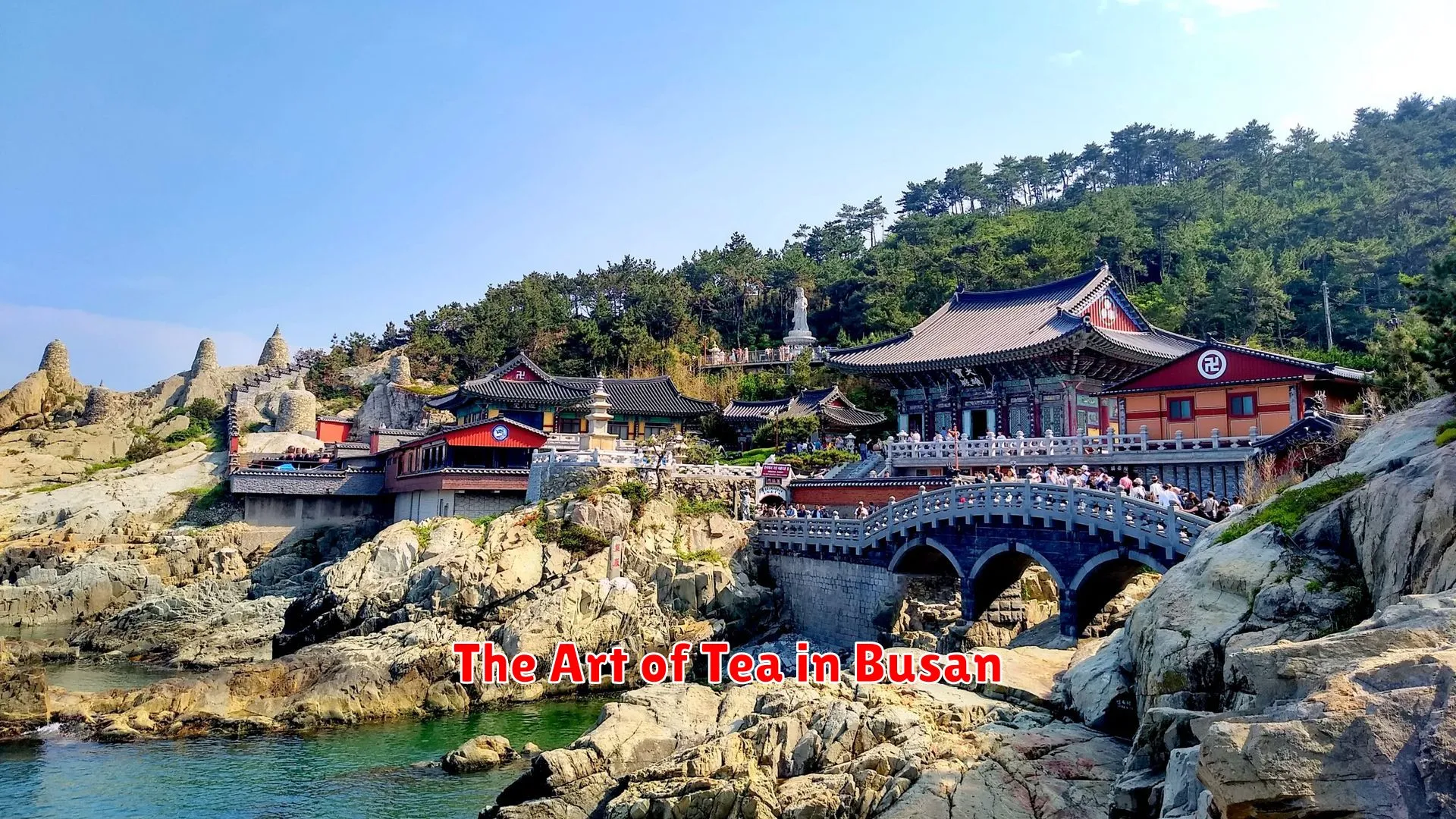
Exploring the traditional side of Busan goes beyond just its temples and markets; it also involves experiencing the exquisite art of tea. Busan’s tea houses offer a serene escape from the bustling city life, providing a peaceful ambiance where visitors can savor the rich heritage of Korean tea culture.
Tea drinking in Busan is more than just a beverage; it’s a ritual that has been passed down for generations. The intricate preparation of tea, from selecting the finest leaves to brewing them with precision, reflects a deep respect for tradition and mindfulness. Tea connoisseurs can indulge in a variety of flavors, from delicate green teas to bold herbal infusions, each offering a unique sensory experience.
Visiting a tea house in Busan is a way to connect with the city’s history and immerse oneself in its cultural significance. Many tea houses are nestled in traditional hanok buildings, blending harmoniously with the surrounding architecture and natural landscapes. The act of sharing tea with friends or engaging in a solo tea ceremony cultivates a sense of community and contemplation.
In Busan, tea becomes a symbol of hospitality and warmth, inviting guests to experience the city’s hospitality in a tranquil setting. Whether you are a seasoned tea enthusiast or a curious beginner, the art of tea in Busan offers a multifaceted journey of taste, aroma, and tradition that is sure to leave a lasting impression.
Discovering the Old Soul of a Modern City
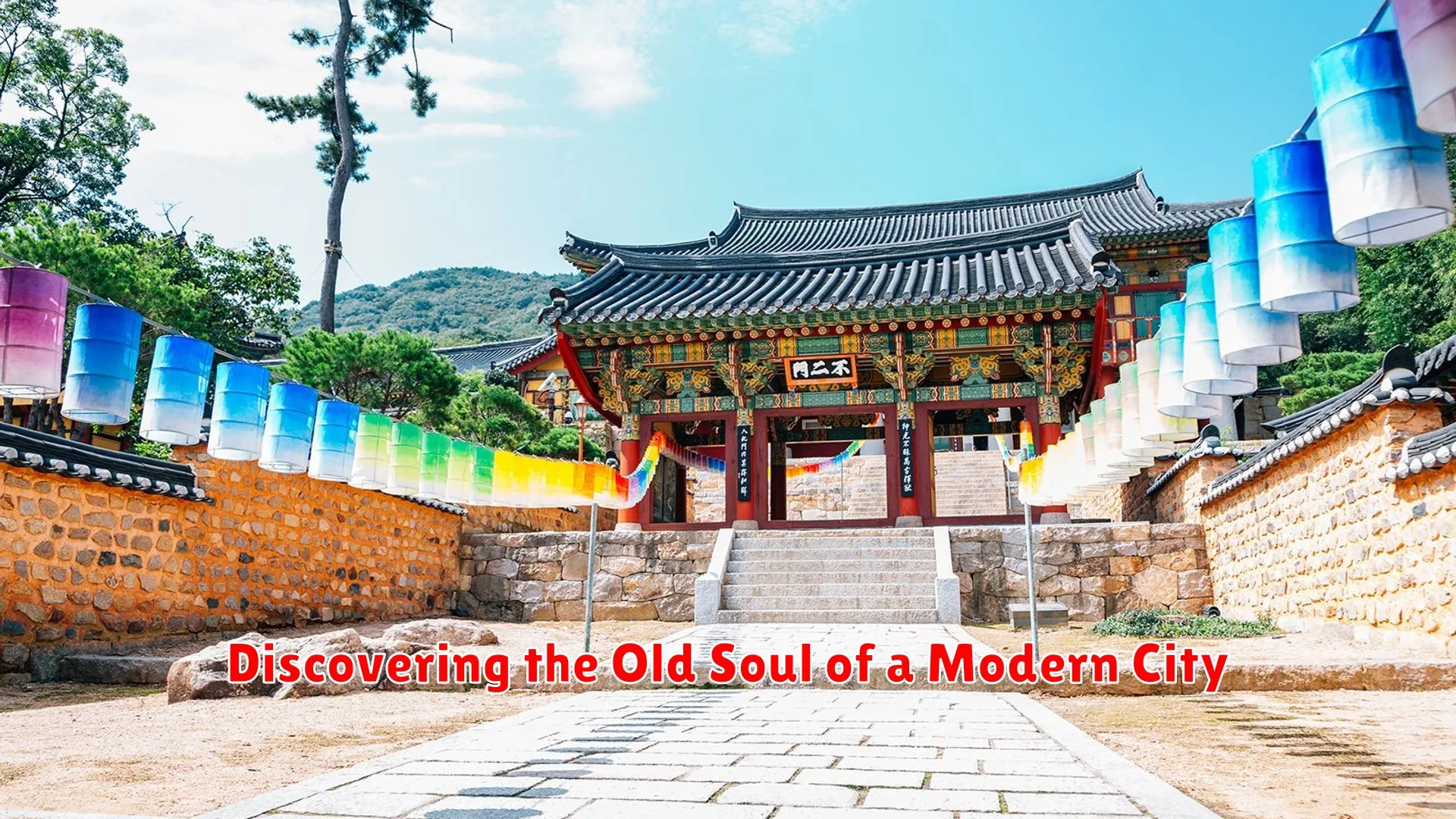
As we delve into the traditional side of Busan, we uncover a hidden world that contrasts with the city’s modern facade. The temples, markets, and tea houses provide a glimpse into Busan’s rich cultural heritage, offering visitors a chance to connect with the city’s deep-rooted traditions.
Temples:
Stepping into Busan’s temples is like stepping back in time. These serene sanctuaries, such as the historic Beomeosa Temple, stand as a testament to the city’s spiritual essence. Visitors can partake in Buddhist rituals, admire intricate architecture, and find peace amidst the bustling city life.
Markets:
The bustling markets of Busan offer a feast for the senses. From the vibrant colors of fresh produce at Jagalchi Fish Market to the eclectic array of goods at Bupyeong Market, these places showcase the heart and soul of the city. Engaging with local vendors and tasting traditional snacks provide a true taste of Busan’s authentic lifestyle.
Tea Houses:
Amidst the fast-paced urban landscape, Busan’s traditional tea houses offer a tranquil escape. Savoring a cup of green tea at a hanok-style teahouse allows visitors to unwind and appreciate the art of relaxation. The peaceful ambiance and warm hospitality create a perfect harmony with the city’s vibrant energy.
The Best Times to Experience Tradition in Busan
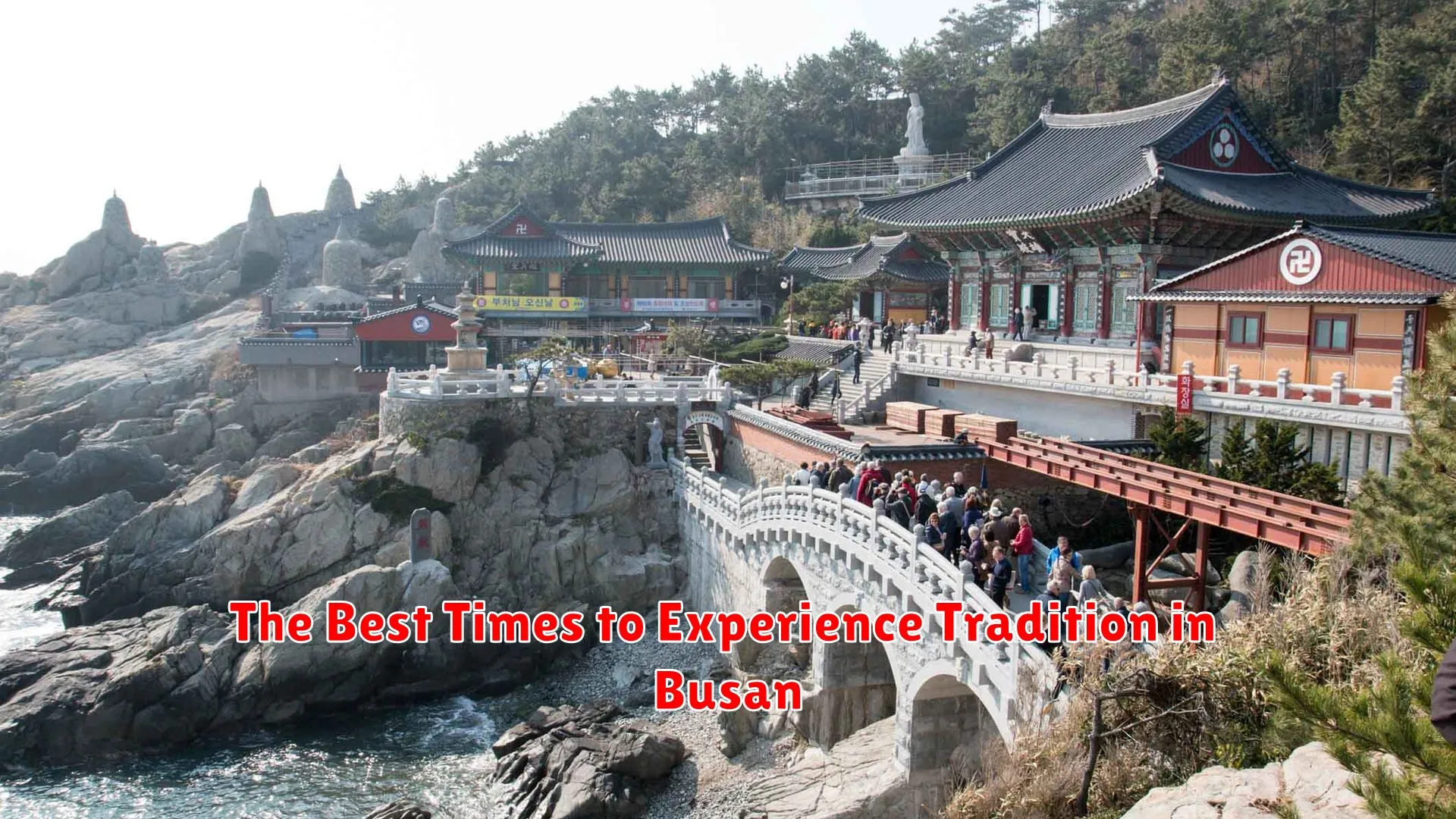
When exploring the traditional side of Busan, timing can significantly enhance your experience. Whether you’re interested in visiting ancient temples, bustling markets, or serene tea houses, certain times of the day or year can offer a more enriching encounter with Busan’s cultural heritage.
Early Morning at Beomeosa Temple
Start your day at Beomeosa Temple to witness the morning rituals. The atmosphere is serene, and you can join the locals in meditation and chanting. Early mornings offer a tranquil experience before the crowds arrive, allowing you to appreciate the temple’s architectural beauty peacefully.
Midday at Jagalchi Fish Market
Visit Jagalchi Fish Market during midday when the market is in full swing. Watch as fishermen bring in their fresh catches, and explore the vibrant stalls selling a variety of seafood. Enjoy a traditional seafood meal at one of the market’s eateries for an authentic taste of Busan.
Afternoon Tea at a Traditional Tea House
In the afternoon, unwind at a traditional tea house in Busan’s historic district. Sip on aromatic teas while enjoying the peaceful ambiance. Some tea houses also offer traditional tea ceremonies, providing insight into Korea’s tea culture and history.
By timing your visits to these traditional spots in Busan strategically, you can immerse yourself in the city’s rich cultural heritage and create unforgettable memories.
Conclusion
Exploring Busan’s traditional side through temples, markets, and tea houses offers a glimpse into the city’s rich cultural heritage and serene beauty, providing visitors with a unique and authentic Korean experience.
